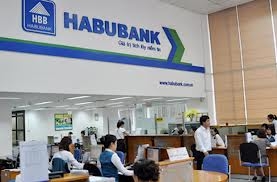Banking merger paying dividends
 Before the merger, SHB reported upbeat business figures. By the end of 2011, SHB posted VND970 billion ($46.2 million) profits, surging 52 per cent against 2010, deposit amount surging 36 per cent and lending up 20 per cent on-year. Its bad debt rate was merely 2.1 per cent, much below banking sector’s average. Meanwhile, Habubank had incurred a colossal bad debt amount of VND3.729 trillion ($177 million), roughly equal to the bank’s chartered capital.
Before the merger, SHB reported upbeat business figures. By the end of 2011, SHB posted VND970 billion ($46.2 million) profits, surging 52 per cent against 2010, deposit amount surging 36 per cent and lending up 20 per cent on-year. Its bad debt rate was merely 2.1 per cent, much below banking sector’s average. Meanwhile, Habubank had incurred a colossal bad debt amount of VND3.729 trillion ($177 million), roughly equal to the bank’s chartered capital.
Under the merger plan, tackling Habubank’s bad debt is central in the initial period after merger took place. And taking on Habubank required SHB to take drastic measures.
Immediately after getting in-principle approval for the merger from the State Bank, SHB founded two specific boards to take charge of transfer issues, one placed at SHB and the other at Habubank led by the chairman of the respective Boards of Directors of two banks, while deputies are general directors of these banks.
SHB ordered 300 staff to check debt records of every customer to avoid not a single debt item being missed.
Habubank’s former general director was tasked with collecting bad debts. SHB’s Board chairman Do Quang Hien, meanwhile, became directly involved in restructuring Binh An Seafood Company, a leading seafood firm in the Mekong Delta—considered a reflection of SHB’s commitment in tackling bad debts.
Consequently, right in the first month after the merger, SHB took back 448 billion ($21 million) bad debts at former Habubank businesses. At this time, collected bad debts have exceeded VND1 trillion ($48 million).
“We have reasons to believe we could bring down bad debt rate to less than 10 per cent in 2012 from current 13 per cent. We are committed not to running at losses in 2012,” said SHB chairman Hien.
The bad debts that Habubank carried into the merger were found to be mainly concentrated in the group of 50 big customers, which have been appraised by SHB as having good markets and satisfactory product quality, but have suffered losses due to poor management and high expenses. Hopes persist that these firms can rebound, especially if SHB steps into their restructuring process as it did with Binh An Seafood Company.
A senior economist assumed since Habubank merging into SHB was carefully outlined, SHB would not face marked hardships in the initial period after the merger. However, problems would arise if the bank’s oversight capacity failed to keep up with its scope expansion.
This is regardless of the differences associated with business culture and human resources of two banks. Conflicts might occur if these factors were not well-matched.
What the stars mean:
★ Poor ★ ★ Promising ★★★ Good ★★★★ Very good ★★★★★ Exceptional
Related Contents
Latest News
More News
- Cashless payments hit 28 times GDP in 2025 (February 04, 2026 | 18:09)
- SSIAM and DBJ launch Japan Vietnam Capital Fund (February 04, 2026 | 15:57)
- Banks target stronger profits, credit growth in 2026 (February 04, 2026 | 15:43)
- Vietnam on path to investment-grade rating (February 03, 2026 | 13:07)
- Consumer finance sector posts sharp profit growth (February 03, 2026 | 13:05)
- Insurance market building the next chapter of protection (February 02, 2026 | 11:16)
- NAB Innovation Centre underscores Vietnam’s appeal for tech investment (January 30, 2026 | 11:16)
- Vietnam strengthens public debt management with World Bank and IMF (January 30, 2026 | 11:00)
- Corporate bond market poised for stronger growth cycle (January 28, 2026 | 17:13)
- Vietnam's IPO market on recovery trajectory (January 28, 2026 | 17:04)

 Tag:
Tag:




















 Mobile Version
Mobile Version